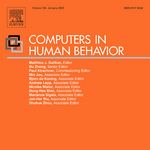Abstract:
The present study aims at fostering learning behavior and learning outcomes in Computer-Based Learning Environments through metacognitive prompts. Thereby, two types of metacognitive prompts are compared with respect to learning behavior and learning outcomes. In a pre-post experimental design, students in experimental group 1 (N = 54) learned with predefined (fixed) metacognitive prompts whereas students in experimental group 2 (N = 54) were instructed to configure their own (self-directed) metacognitive prompts and to learn with them afterwards. Students in the control group (N = 55) received no instructional support and learned without prompts. The results show that self-directed and fixed prompts lead to less linear learning behavior than no prompts. Regarding learning outcomes, no significant main effects were found. Further, findings indicate that interactions between learner characteristics and treatment have a significant impact on learning behavior and learning outcomes. Students with lower verbal intelligence and reading competence especially seem to benefit from prompts. Hence, when prompting students, their learner characteristics should be considered. Further research should investigate further conditions and the underlying mechanisms of prompt use.
Hier können Sie das Paper bis zum 15. Juni 2018 kostenfrei downloaden.
Pieger, E. & Bannert, M. (2018). Differential effects of students' self-directed metacognitive prompts. Computers in Human Behaviour, 86,165-173. doi.org/10.1016/j.chb.2018.04.022
